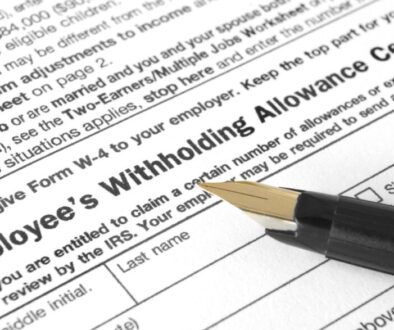What Is Tax Day and Why Is It Important?
What Is Tax Day and Why Is It Important?
Tax Day is a crucial date on the calendar for millions of Americans. It marks the deadline for filing income taxes with the Internal Revenue Service (IRS). This annual event has a significant impact on individuals, businesses, and the economy as a whole. Understanding Tax Day and its importance is essential for anyone who wants to stay on top of their financial responsibilities.
As we delve into the topic, we’ll explore what Tax Day really means and why it matters. We’ll look at key dates and deadlines that taxpayers need to know, and discuss the broader implications of this important day. Whether you’re a seasoned taxpayer or new to the world of income taxes, this guide will provide valuable insights to help you navigate the tax season with confidence.
What Is Tax Day?
Definition of Tax Day
Tax Day is the annual deadline for individuals and businesses to file their income tax returns and pay any outstanding taxes to the Internal Revenue Service (IRS) in the United States. Typically falling on April 15th, this date may shift to the next business day if it lands on a weekend or holiday. It marks the cut-off point for taxpayers to submit their returns for the previous year without incurring penalties or interest for late filing.
Historical background
The concept of Tax Day has evolved over time. Originally set for March 1st in 1913, following the adoption of the 16th Amendment, it was later moved to March 15th in 1919. In 1954, as part of a major tax code revision, the date was pushed to April 15th, where it has remained for almost 70 years. This change allowed taxpayers more time to prepare their returns and helped the IRS spread out its workload.
Significance in the U.S. tax system
Tax Day serves as a critical financial planning milestone, prompting taxpayers to review their financial activities over the past year and make adjustments for the future. It ensures compliance with federal tax laws and highlights the civic duty of contributing to public services and infrastructure. This annual checkpoint encourages reflection on income, expenses, and overall financial health.
Key Dates and Deadlines
Standard Tax Day date
Tax Day, the federal individual tax filing and payment deadline, typically falls on April 15. This date marks the cutoff for taxpayers to submit their returns for the previous year without incurring penalties. In 2024, Tax Day was April 15. However, if the 15th lands on a weekend or holiday, the deadline shifts to the next business day.
Exceptions and extensions
Taxpayers can request a six-month extension, giving them until October 15 to file. It’s important to note that this extension only applies to filing, not payment. Estimated taxes must still be paid by the original deadline to avoid penalties. In special circumstances, such as natural disasters or economic hardships, the IRS may extend deadlines. For instance, during the COVID-19 pandemic, the deadline was postponed to July 15 in 2020 and May 17 in 2021.
State-specific deadlines
While many states align their tax deadlines with the federal date, some have different due dates. For example, Delaware’s deadline is May 2, 2024, while Louisiana’s is May 15, 2024. It’s crucial for taxpayers to check their state’s specific deadline, as it may vary annually due to weekends and holidays. Some states, including Alaska, Florida, and Texas, have no state income tax and therefore no filing deadline.
Importance of Tax Day
Legal obligations
Tax Day serves as a crucial deadline for fulfilling legal obligations. Individuals and businesses must file their income tax returns and pay any outstanding taxes to the Internal Revenue Service (IRS) by this date. Failure to comply can result in penalties and interest charges. For most filers, the due date is April 15, but it may shift to the next business day if it falls on a weekend or holiday.
Financial planning
This annual event prompts taxpayers to review their financial activities and make necessary adjustments. It encourages reflection on income, expenses, and overall financial health. Tax Day also highlights the importance of proper financial planning throughout the year to avoid last-minute stress and potential penalties.
Government revenue
Taxes are vital for funding essential government services and programs. They provide revenue for federal, state, and local governments to support defense, infrastructure, healthcare, education, and social services. The timely collection of taxes on Tax Day ensures the continuous operation of these crucial public services, benefiting all citizens.
Conclusion
Tax Day has a significant influence on individuals, businesses, and the overall economy. It serves as a crucial deadline to file income tax returns and pay any outstanding taxes, prompting people to review their financial activities and make necessary adjustments. This annual event also highlights the importance of staying on top of one’s financial responsibilities and understanding the tax system’s impact on personal and business finances.
To wrap up, Tax Day is more than just a date on the calendar. It’s a reminder of our civic duty to contribute to public services and infrastructure through taxes. By understanding the key dates, deadlines, and the broader implications of Tax Day, individuals and businesses can better prepare themselves to navigate the tax season with confidence. This knowledge empowers taxpayers to make informed decisions about their finances and fulfill their legal obligations effectively.




